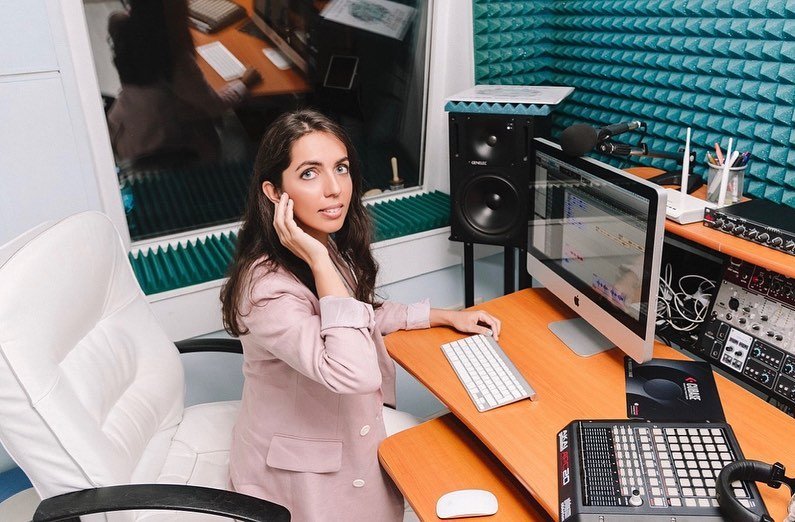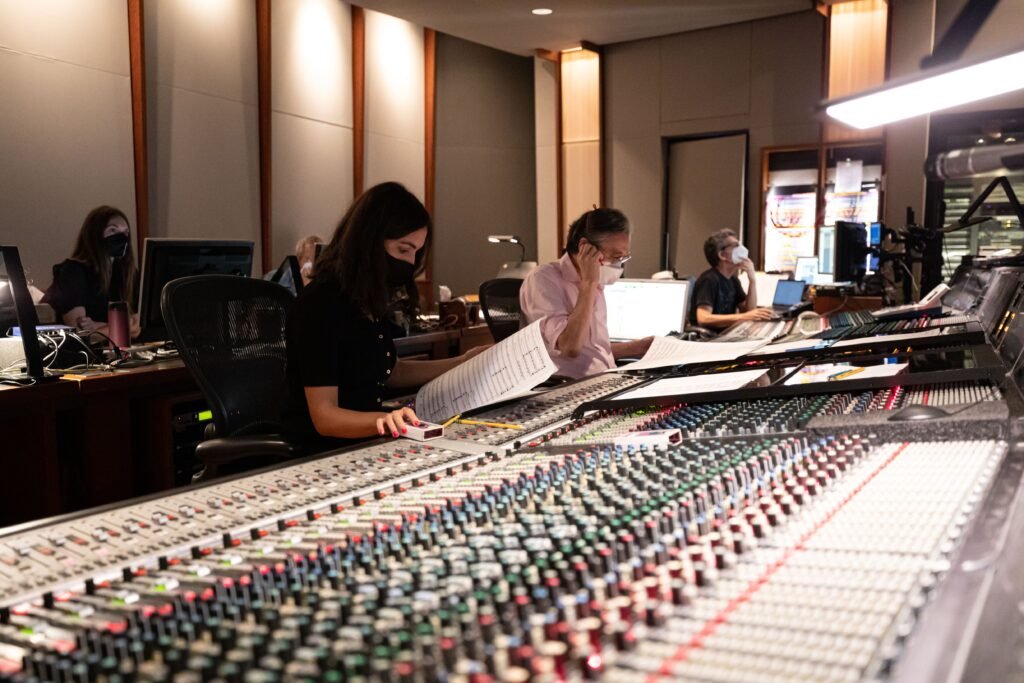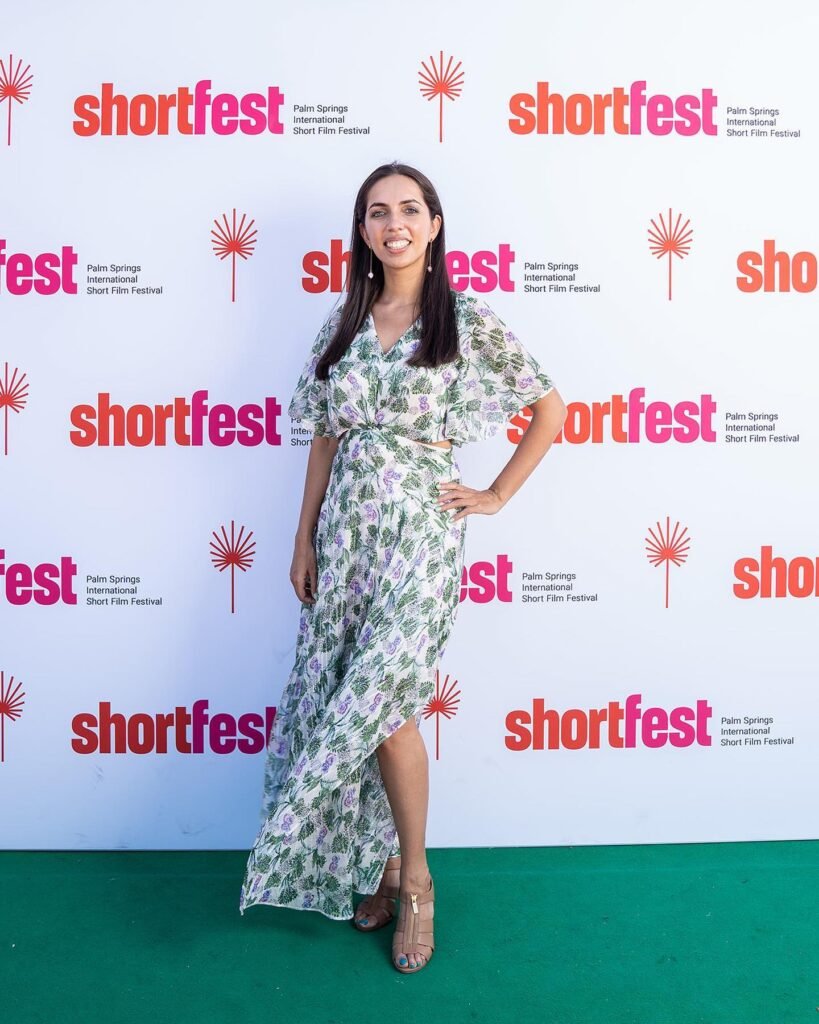Originally from Moscow, Monika Mia is a composer, producer and songwriter who writes for film, games and advertising. Relatively new to Los Angeles, Monika is now continuing her career here after graduating from USC Screen Scoring Program in 2022. Her compositional approach combines electronica and orchestral scoring, and she loves to explore new sonorities and exciting textures in her music. I recently had the pleasure of interviewing Monika about her career.

1. First things first, what got you into film music?
My first short film I got through a friend, and it turned out to be an arduous process with complete rewrites and rescheduling of mixing sessions. However, I realized I felt an incredible sense of purpose for my music, and I loved the storytelling aspect of it… I have always been an avid reader, so it appealed to me. I tried to learn more about writing for media and got sucked in, I guess!
2. Would you say your background has influenced the way you compose?
Russia has a rich traditional of classical music, and most of my favourite classical composers are Russian – Prokoviev, Mussorgsky, Scriabin, the list goes on! The way music theory is taught in Russia is very organised and systematic, so I am glad I have had the benefit of that training, and it definitely influenced the way I approach writing.
Despite my not being ethnically Russian, it’s the Russian music school that influenced my orchestral writing the most. I am half Bangladeshi, half Georgian, but I have never studied the music traditions of those countries in depth (although I would love to one day!)
3. Why did you decide to move to Los Angeles?
I decided to pursue visual media composition halfway through my undergraduate studies in London, and was unsure whether I ought to stay on and explore the UK scene or make this big move to somewhere so far. Eventually, the encouragement from my then teacher John Ashton Thomas convinced me to submit an application to USC Screen Scoring Program.
4. How do you approach collaboration with directors? Do you manage to find a way to put musical concepts into a language they would be familiar with?
That indeed can be a hurdle, but one that I always find ways to overcome!
One of the methods I use is to ask a director to give me a number of associations that come to their mind when they think of the scene – any nouns, adjectives, verbs and so on. That helps me, but also helps them – to move beyond trying to describe the scene with words like “happy” or “sad”.
But often just talking about the story, getting to understand what the characters are really feeling and thinking (which can be different from what they are saying) – that probably provides the strongest basis for the work that I do subsequently.

5. Is there a genre you are particularly comfortable with? Do you see yourself eventually specialising in one of them?
My education has permitted me to become a fairly well-rounded composer, but I think I especially enjoy incorporating custom sounds into the score – usually sci-fi, thriller, horror and fantasy are the genres open to sonic exploration. But my classical training also prompts me to regularly come back to orchestral writing – my favourite orchestral section is woodwinds, especially flutes (they pop up in my scores pretty often!)
6. Share your favourite composition process stories!
One particular project springs to mind – it was a short film shot entirely on 35 mm, for a film festival submission in London. The director came over to my house, I got out a bunch of folk Russian woodwind instruments and for the next few hours we sampled all the sounds that I was able to get out of those, and then incorporated them into the score. That was tons of fun!
7. Has your experience in writing music for advertising helped or hindered your development as a film composer?
I think it helped – you learn to work on a tight deadline and adapt to different styles quickly. With the right director and project, even jingles can be quite creatively fulfilling! Once I had to produce a track that would pay hommage to Antonioni’s “Blowup” for a special project for Tiffany&Co – that was an example of an artistically fulfilling collaboration.
8. Do you find time to create music outside screen scoring?
I feel that for me it’s quite important to continue writing for myself as well as for work – it’s my creative lab of sorts where I can test all sorts of ideas. Over February and March, I am planning to release a few tracks that are just that – creative experiments. I love to collaborate with artists form other disciplines, and I was able to have artworks created for each track, and a friend of mine directed a video with dancers to one of the tracks.
9. Any hobbies outside of music and visual media?
I love reading, and I love dramatic arts… I am obsessed with traveling, and enjoy spontaneous trips and hiking. This year I have decided to pick up tennis – we’ll see how that goes!
10. Where do you see yourself in five years?
Hopefully, continuing what I am doing, but on a large scale! Writing, co-writing, producing… I am also quite interested in the video game field, so hoping to develop more connections there as well.
